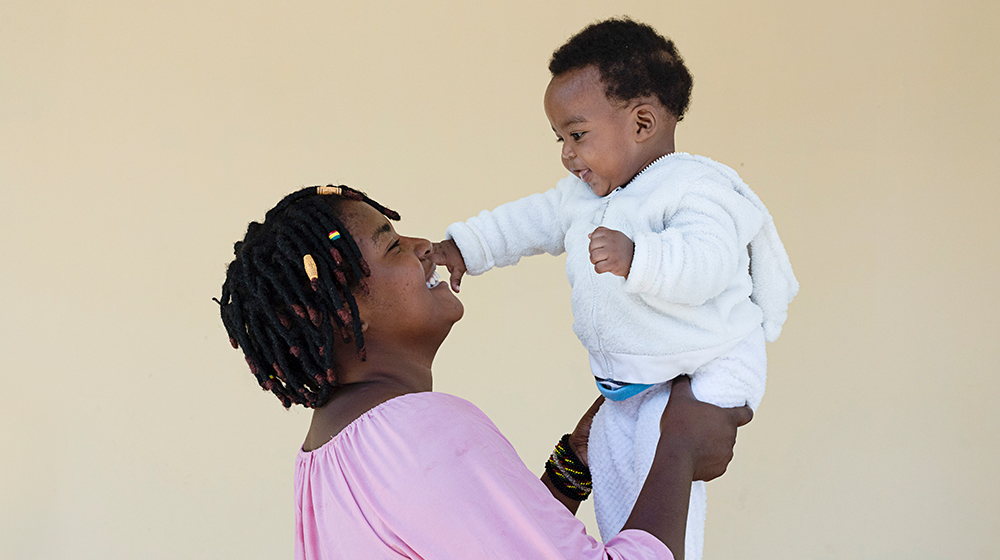UNITED NATIONS, New York – Every woman has the right to choose whether or not to become a mother. But in reality, millions of women and girls face high rates of sexual violence, a lack of access to contraceptives and restrictive laws and norms constraining their reproductive autonomy. For them, the most consequential reproductive decision in their lives is no decision at all.
This month, as more than 100 countries mark Mother’s Day, we call attention to the power and importance of exercising choice in the act of becoming mothers – a power afforded to too few. Below, we explore why choice in motherhood is rooted in human rights, we celebrate the gains in women’s empowerment and spotlight where more support is needed. Here are five reasons to support choice this Mother’s Day.
1. Because a lack of choice is harmful to equality, health and economic well-being.
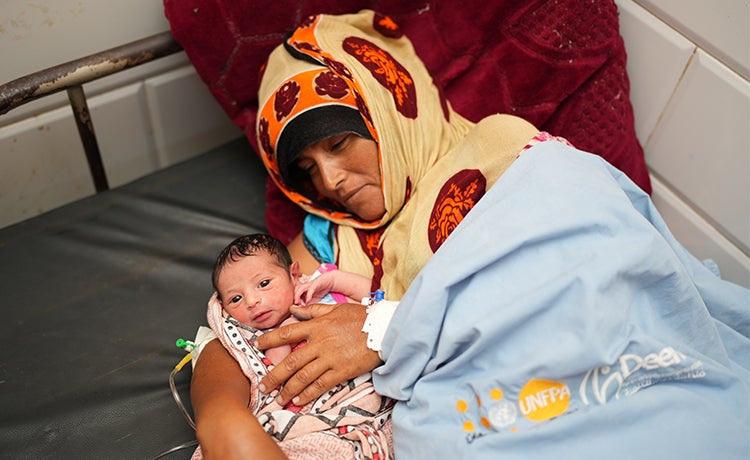
A new mother and baby at the Al Mokha Hospital in western Yemen. Women and girls must be able to exercise their right to choose when, whether and with whom to have children. © UNFPA Yemen
Around the world, countless women and girls are unable to choose when, whether and with whom to have children – with serious consequences for them, their families and entire societies. This is true whether a woman becomes a mother without wishing to, or whether she wishes to become a mother but cannot.
Globally, nearly half of pregnancies are unintended. Evidence shows that unintended pregnancies are linked to human rights violations, psychological distress, child maltreatment, delayed and decreased rates of antenatal care, breastfeeding and vaccination,and higher rates of maternal deaths from unsafe abortions. Women who desire children but cannot have them – whether due to infertility, economic stress or other reasons – often suffer psychologically and, in later life, financially, and can be subject to societal stigma.
Essentially, robbing people of their reproductive agency undermines their aspirations throughout life, affecting everything from future educational and career opportunities to their mental and physical health.
“Girls do not become pregnant because that is what they want,” said Mangenda Kamara, who co-founded a mentoring project for pregnant adolescents in Sierra Leone. “But [because of] extreme poverty, as well as violence and many levels of coercion, including transactional sex, limit their options.”
2. Because the ability to choose on an individual level leads to gains on a global level.
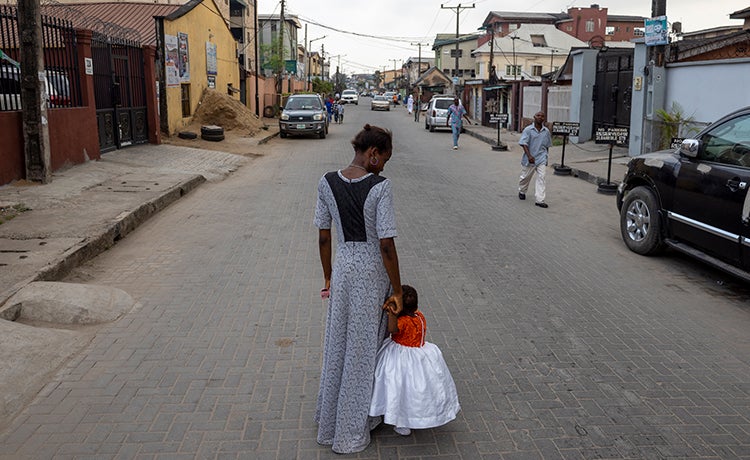
Kehinde Odususi, 19, with her two-year-old daughter Mayowa, in Lagos, Nigeria. Creating more opportunities for women has ripple effects for generations, paving the way for greater equality and personal empowerment. © Lindokuhle Sobekwa/Magnum Photos for UNFPA
Educated girls and women are more likely to access health care, understand their rights and have the self-confidence to act on them. Creating more opportunities for women has ripple effects for generations, as those in the workforce are more likely to expect the same for their daughters, paving the way to greater equality and in turn economic, social and personal empowerment.
The costs of childbearing while employed can be onerous for women especially, as pregnancy can require a temporary exit from the workforce, reduced working hours and the potential loss of skills that can discourage employers from investing further in staff. But employers are increasingly aware that supporting sexual and reproductive health and rights yields gains for their own bottom lines and, consequently, national economies. One study in Kenya showed that if two thirds of the country’s unmet need for modern contraceptives was met, its economy would experience a 51 per cent per capita GDP increase by 2050. And women like Diana Donțu, a company executive director in the Republic of Moldova, testified to the benefits of family-friendly policies such as working from home and on-site daycare: “Without these policies, I would have had to find another company, or stay at home,” she said.
3. Because protecting the right to choose parenthood is essential to securing gender equality.
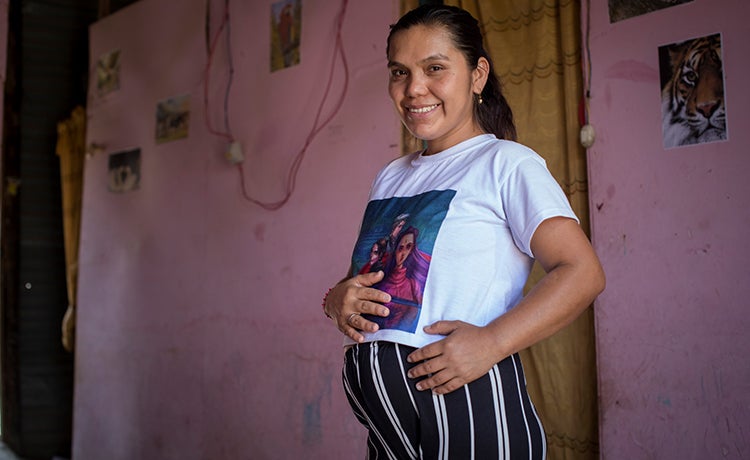
Miryam Coello in Piura, Peru.Gender unequal norms are forcing women to choose between having the children they desire or having the future they aspire to. © UNFPA/Factstory/Enrique Castro-Mendivil
The ability to choose motherhood is intrinsically linked to gender equality: When individuals, particularly women, have control over their reproductive lives, they can participate more fully in society and exercise their right to bodily autonomy.
But gender-unequal norms are denying women the right to choose whether and when to bear children: “A relative was fairly young when she got married, and was pressured to get pregnant during the first year,” one woman in Jordan told UNFPA. “Adolescents and youth struggle a lot,” said one man in the United Republic of Tanzania. “They are given inaccurate and fear-triggering information.”
“A pharmacist told my friend she could not use emergency contraception because she was breastfeeding,” explained another woman in Spain. “That’s why she had her fourth baby.”
Gender unequal norms are also forcing women to choose between having the children they desire or having the future they aspire to. Data show that women are frequently ejected from the labour market after having children, forcing them into dependence or economic precarity. When they do stay in paid employment, they overwhelmingly carry the brunt of domestic responsibilities and caretaking. “I want to be married one day, but only under certain conditions,” said Hideko, a 22-year-old office worker in Tokyo. “I would want to continue my job, and my partner and I would have to share the burdens of house chores and child-rearing.”
4. Because women are people with autonomy, not birthing machines that influence population dynamics.
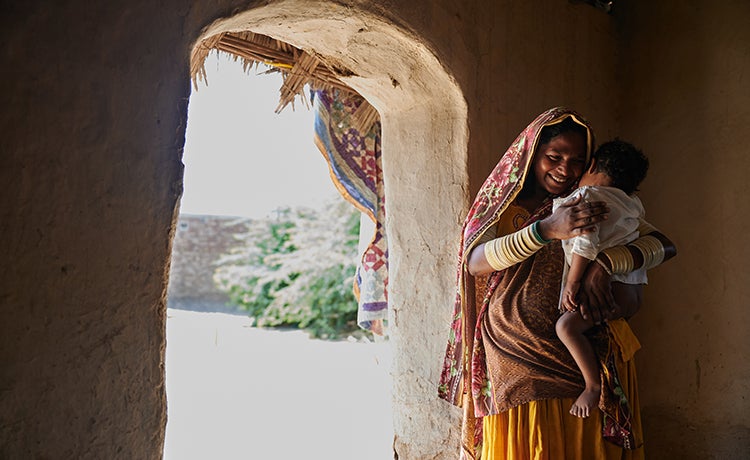
Shanti holds her son Nishat in her home in the Sindh Province, Pakistan. Inequalities mean many women are having more children than they want, while others want more children than they are having. © UNFPA/Shehzad Noorani
As a result of these inequalities, many women are having more children than they want, while others want more children than they are having. Yet when conversations about birth rates and fertility arise, women’s desires for their family size are all too often ignored.
Stifling reproductive choice has profound consequences for individuals, families and communities. Involuntary childlessness can have severe negative psychosocial and economic effects, especially where there are scarce options for assisted reproduction. Voluntary childlessness is met with severe stigma. Having more children than intended can lead to cycles of poverty, limit access to schooling and – especially for girls and adolescents – carries a high risk of mortality.
Yet the world is failing to prioritize women’s reproductive decision-making. UNFPA’s latest flagship report finds that, in 69 countries, one quarter of women still cannot make their own health care decisions. One quarter cannot say no to sex with their husband or partner. Nearly 1 in 10 are unable to decide about contraception. And for the first time, UNFPA has trend data on women’s ability to exercise decision-making over their sexual and reproductive health, and out of 32 countries with data, 40 per cent see women’s bodily autonomy diminishing over time.
5. Because it affirms the rights to bodily and reproductive autonomy – for everyone.
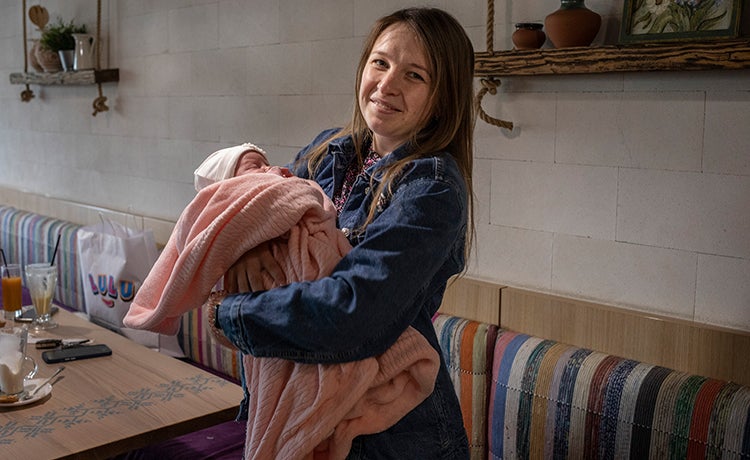
Olga from Ukraine with her baby girl, Eva in Balti, in the Republic of Moldova. The right to choose to become pregnant is linked with the right to own one’s body and future, to obtain health care and to raise children in a safe and healthy environment.© UNFPA/Siegfried Modola
The right to choose to become pregnant is linked with so many others: The right to be the owner of one’s body and future, the right to obtain health care, the right to raise children in a safe and healthy environment. For so many, this agency remains out of reach: “When getting a family planning method in a clinic, most females still need consent from their partners,” said one woman in Nigeria. “Men get to influence women’s decisions.” Sometimes, it is a case of supply versus demand that determines a family’s fate: “In most cases, contraceptive options are determined by availability, instead of choice,” a man in Uganda explained.
On the other hand, support for women’s empowerment and choice can advance the flourishing of all people. We see this in the growing inclusiveness of grassroots movements, and in the links being forged between feminist, LGBTQIA+ and racial justice groups. “A diverse cross-section of people, from feminists to indigenous groups to climate and youth activists, are already pointing the way forward towards a fairer, shared future,” said UNFPA Executive Director Dr. Natalia Kanem.
“Our resilience comes not from any individual strand but emanates from the collective, interwoven whole. That is our strength, and it is how we will proceed and succeed — by working together.”
Source:unfpa.org


